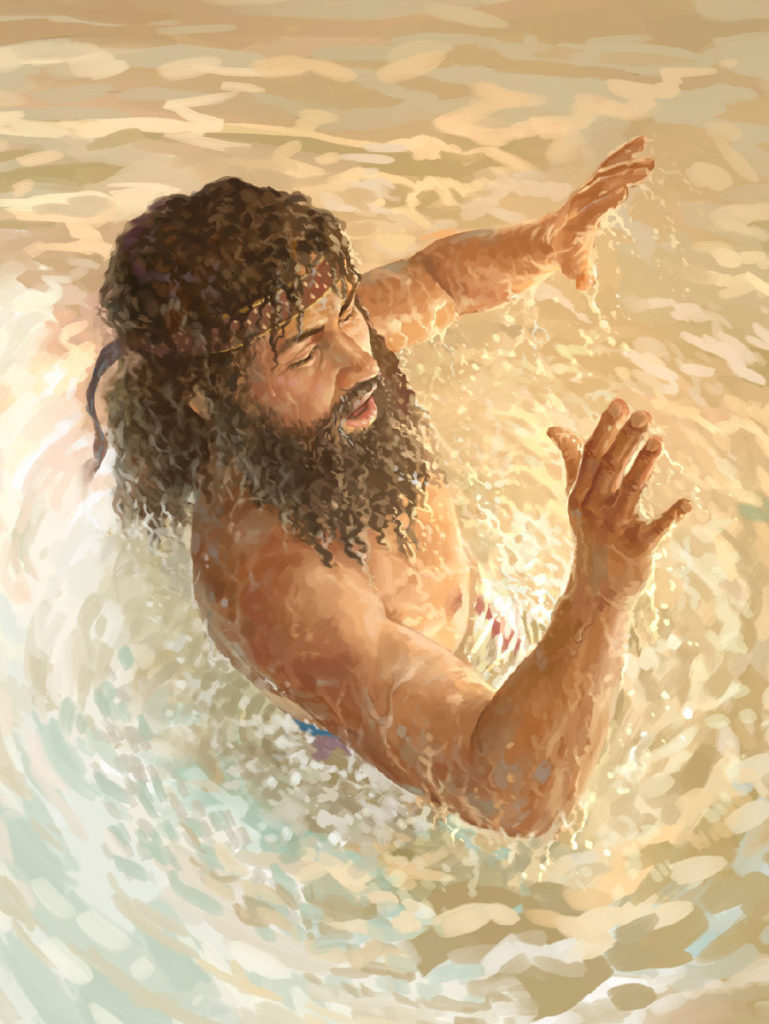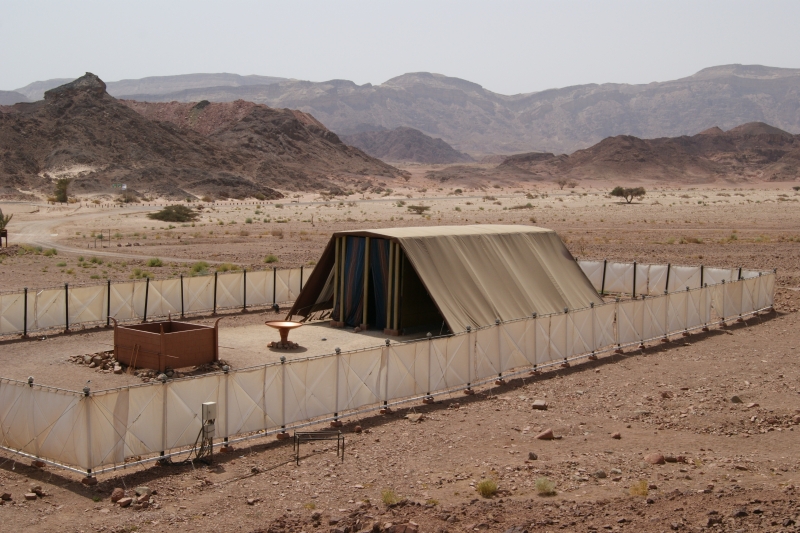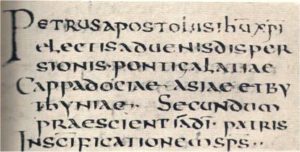It’s really an astounding thing to say. “I am the bread of life” is the first of seven pivotal “I am” statements in the gospel of John, all of which identify the Son of Man with God himself. By this point in John’s gospel (chapter 6) the Jewish leaders clearly understand what Jesus is saying (John 5:18)—and of course, if any other man were saying it, he would be subject to execution under Jewish law.
“I am the bread of life” goes one step further: it disturbs not only Jesus’ enemies but also his friends.

The immediate context is feeding 5000 in the wilderness, an echo of what his Father did for the children of Israel during their 40 years of wandering. John’s gospel, incidentally, is the only account that includes that Sunday-school staple, the little boy with his little lunch of 5 loaves and 2 fish. (He must have had a most conscientious mother.)
Wouldn’t it be great if Jesus could establish Israel as the bread capital of the world?
After this amazing event, the great crowds who have taken to following Jesus intend to follow him right to the throne of a restored kingdom—they’ll even force him onto that throne, if necessary. He escapes into the hills, walks on water to the other side of the sea of Galilee, and meets some of his most persistent followers at Capernaum. They’re frustrated; can’t he see that they have big plans for him? “You are seeking me because I gave you what you wanted”—i.e, a big meal. No doubt they believe he can duplicate that sign at any time. Wouldn’t it be great if he could establish Israel as the bread capital of the world, and make the Imperial powers come crawling to them for favors?
He has another plan:
I am the living bread that comes down from heaven. If anyone eats of this bread, he will live forever. And the bread that I will give for the life of the world is my flesh.
Got that? Unlike manna coming down from heaven to sustain mortal life, he himself is the living bread that will sustain eternal life. And it gets weirder:
. . . unless you eat the flesh of the Son of Man and drink his blood, you have no life in you. Whoever feeds on my flesh and drinks my blood has eternal life, and I will raise him up on the last day. For my flesh is true food, and my blood is true drink.
“This is a hard saying; who can listen to it?” That’s how many of his disciples respond, not his enemies. They find the teaching so hard they can’t stick around for more. The radical content might have driven us away, too—it’s lost the original shock for those of us who are accustomed to nibbling matzo crackers and sipping grape juice during communion services.
In the pagan culture that surrounded Israel, the gods were not accustomed to being devoured—it was usually the other way around. Literally, in earlier times, when petitioners fed their children to Moloch and Baal. In the more sophisticated Greek and Roman culture child sacrifice didn’t happen, unless it was on the outskirts of the empire. But gods demanded and devoured lesser offerings.
Israel’s God demanded offerings not to consume, but to propitiate: “Without the shedding of blood there is no forgiveness of sins.” It’s such a dramatic contrast even some of the Jews missed it and imagined that Yahweh was somehow satisfied with the meat. Even though he laughed away the thought: “If I were hungry, I would not tell you, for the world and everything in it is mine. Do I eat the flesh of bulls, or drink the blood of goats?” (Psalm 50:12-13)
Rather than devour us with his demands, he gives himself for us to devour
Being satisfied in himself, he is never hungry. But since his people, and all people everywhere, are born hungry, he’s a giver. Summer and winter, springtime and harvest, he gives and gives.
And once on earth, he continues to give, multiplying loaves and fishes, reversing maladies, eventually offering up his own body and blood. Rather than devour us with his demands, he gives himself for us to devour: true food, and true drink.
True, because there is no other source. “Lord, to whom shall we go? You have the words of everlasting life.” And not just the words, but the very body.












